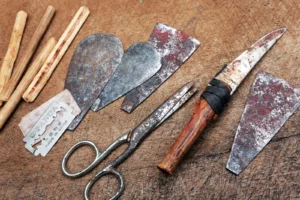Political will has been mentioned as among the major helpful factors towards dramatic drop in the Female Genital Mutilation (FGM) practices in the country.
The stakeholders made the appraisal on Thursday here during the 2022 Tanzania Demographic and Health Survey and Malaria Indicator Survey (TDHS-MIS) results dissemination to Lake Zone health service providers, which was organised by National Bureau of Statistics (NBS).
According to them, it is the political will that attracts collaborative efforts, engaging a number of foreign donors, as well as local non-governmental organisations (NGOs), to support the war against FGM and all forms of Gender- Based Violence (GBV) and dropping from 35.4 per cent in 2015 to 8 per cent in 2022.
“These interactive efforts play a vital role especially when public education comes in. Stakeholders are scattered everywhere, mostly in rural areas for the sessions to educate the society on negative impacts of female genital mutilation,” said the Director for Mwanza-based Kivulini organisation, Mr Yassin Ally.
Again, he added, President Samia Suluhu Hassan heightened was against FGM through the formation of Ministry of Community Development Gender, Women and Special Groups, specifically to deal with GBVs.
According to Kivulini observation, free education initiative also plays an important role towards FGM fight because majority girls are in school system that protects them against GBVs.
The system also encourages the formation of school clubs, through which the girls have been taught how to be confident and decision makers to their life issues, said Mr Ally, predicting that: “Tanzania will therefore, soon achieve zero female genital mutilation practices, following the government’s endless efforts to check the vise, as we also see formation of gender desks in various public entities to fight the evils,” Mr Ally said.

Chairperson of Traditional Elders’ Network in Mara Region, Gegasa Shulumbu, commented that it is the government’ responsiveness and commitment that leads to many communities to shun the outdated traditions, including FGM, in most affected regions, like Mara.
Through public education, he affirmed, majority FGM practitioners do voluntarily destroy their chopping tools in broad-day lights, at public meetings. However, he urged the government to set up permanent strategies that will be supporting traditional elders’ trips for public education, especially in hard-to reach areas.
“We are currently empowered by donors, specifically UNWomen. The efforts might end up when the donor’s programmes come to an end,” he proposed.
Gracing the TDHS-MIS report dissemination, Representative of the Mwanza Regional Administrative Secretary, Mr Daniel Machunda, urged the meeting participants to make the statistics operational and bring in more successes in the health sector.
Apart from FGM data, the TDHS-MIS also shows tremendous decrease in maternal mortality from 530 in 2015/15 to 104 out of 100,000 live births, malaria case to under-five children from 14.4 to 8 per cent as well as stunting from 34 to 30 per cent.
Source:Daily News


